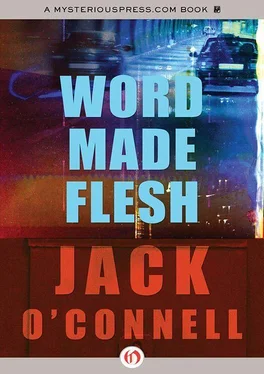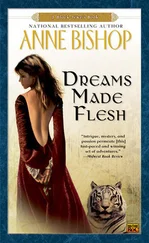It was the kind of idea that comes in an instant, not the gradual brand of notion that grows to its apogee in measured intervals, but the type of epiphany that lands without warning in the core of the thinker’s brain and then takes over like an invading warlord, a ruthless imperialist who will broach nothing but an unconditional surrender of the mind’s attention. In the second that Alicia let Mr. Zottman’s socks fall from her lap to the floor of the loft, she knew she had found her calling, she knew this idea would possess her until she turned it into a solid and working reality, that it would not leave her alone for a moment, would paw at her like an insatiable, overbearing lover. So she left Haus Levi that second over the slurred but ineffectual protests of her patriarch and began to go door to door up and down the block, attempting, breathlessly, to explain her plan to the community and to solicit donations.
She was somewhat less than successful that first evening. Many people could not comprehend her spiel and shook their heads at her spasmodic talk of turning an entire floor of precious lodging into a lending library. It is true that from this night forward, Alicia’s reputation developed from that of a cherished prodigy to an eccentric, possibly even dangerous, dreamer, a young lady who had spent too much time with her head hung over a book and would now bear the consequences of such obsessive behavior for the rest of her days. In the end, she agreed to swallow a spoonful of Mrs. Wenzel’s relaxation tonic and walked home more determined than dejected. She pulled her father into his cot to sleep off his day of excess and then she began to rearrange the attic loft, making a pile of expendables that could be trashed and relocating the remaining possessions into a single, crowded corner.
By the time father woke the next morning, Alicia was already out scavenging produce crates at the Hay Market and bargaining wildly in the book stalls of the Bazaar. She returned to the loft dragging her spoils behind her to find her father gesticulating to a small group of Schiller elders, including Babbi Gruen, in the middle of the near-empty attic, raving with the question of how he could have been robbed by his own people as he slept in the middle of the pilfering. It took a few minutes for Alicia to convince the old men that no robbery had taken place, that she had simply been cleaning and redecorating. It took much longer to explain her plans to her father. He proved less than enthused with the notion of turning his humble room into a public library and used all his energy to dissuade his daughter, even as he helped her carry the stained prune crates, overflowing with the dank aroma of old books, up to the top floor. He told her to use her God-given sense as Alicia stacked the crates one atop the other and attempted to tack them together using their one good saucepan as a makeshift hammer. He pleaded that the community had already spoken and rejected any need for a library as Alicia set to alphabetizing her meager collection of volumes. He warned of the resentment they could incur from this nonsensical venture as the daughter fashioned a piece of discarded plywood and two dented milk urns into an unlevel desk by the attic’s entrance that would serve both as checkout station and barrier between library and living quarters.
When Alicia finally stopped moving to survey her work, her father took her by her wrists, softly, not without love, and said, “I cannot let you do this, my child.”
Alicia pulled a hand free, stroked his face, and in the same calm but inflexible tone, replied, “You cannot stop me from doing this, Papa.”
The old man knew he was beaten, but struggled out of habit.
“They do not want a library, Alicia.”
“Yes, they do,” the daughter said, moving a soup can full of pencils to her new desk. “They just don’t know it yet.”
The comment proved more prescient than possibly even the girl herself could have known. She hand-printed a series of posters announcing the opening of the Ezzenes’ Free Lending Library, its location in the attic of Haus Levi and its hours of operation. In the beginning, her collection of books was meager and somewhat uniform. The German peddler she’d gotten most of them from seemed to specialize in either melodramatic love stories or questionable historical tracts. Alicia’s first visitors to the library were a trio of middle-aged ladies from Haus Issachar led by the midwife Rosina Waikby. They were cordial if a bit frosty until one of the group spotted a copy of Paul de Kock’s Georgette and remarked, with a bit more interest than condemnation, that she’d heard it was a very decadent tale, very Western in its morals and use of epithets. Alicia saw her opportunity and descended upon these potential readers like a hound on a lame hare. She scooped up a handful of like-minded Gothics and distributed them to the ladies, pointing out the flamboyant cover art, always a depiction of an alluring if distressed heroine, struggling, or succumbing, depending on your point of view, in the arms of some picaresque rogue whose pectoral muscles were bursting through his inexplicably shredded pirate blouse.
When Alicia penciled in the return date on the inside of the rear cover of Barber of Paris , Mrs. Waikby dropped a coin into the coffee can marked donations. The hollow metal echo was the noise of a launching, a departure into a world where books, ideas, and language held the value of currency.
“It was only a bloody half-kreuzer,” the father said that night, squeezed under the rafters in the new and more compact dining space.
“No,” Alicia said, maybe a bit smug in her delight, “it was more than that. It was the beginning of an endowment.”
“Endowment,” the father repeated, cutting up a sausage. “Well, just make sure the Zottman’s shirts are ready before your meeting with the investment counselor.”
Alicia began to find books everywhere. She seemed to develop a kind of instinct, a second sense that led her to uncover troves of stock for the library. The coffee can donations never amounted to very much, but when added to what she could spare from her laundering fees and combined with this knack for tracking down caches of unwanted and discarded and forgotten books, she managed to continually expand the holdings of the attic repository. She entered into negotiations with the barbers of Hahnpasse Row, offering a discount on the cleaning of their hair sheets and shaving towels in return for some of the lurid crime novels that sat in racks for waiting customers. She washed chalkboards down at the university in exchange for the right to pick discarded texts from a variety of disciplines. She even collected the refuse of tear sheets from the Dumpsters behind the city’s largest newspaper office, spent hours at a worktable clipping and collating the serialized stories of the rear pages, hardening them with a mixture of paste and soap flakes, and binding them in pressed boards that she made from a mash of fish scales, cinders, rag linen, and starch. These volumes proved more popular than she had expected and after a time the odor from them began to vanish.
As her archives grew, she divided her stacks of produce crates into sections. The wall adjoining the washtubs now housed an array of dog-eared philosophical treatises, while the shelving that ran from the bathroom door to the attic’s single window was host to collections of history, science, and mythology. And always, in the midst of the dwelling, swelling to the point of rupture, the wheels creaking under the burden of a weight it was never designed to support, the new-books bin, once a common laundry basket of dingy white canvas stretched over an aluminum frame, the bin was now the repository of each week’s new and as yet unsorted volumes. Coming into the attic at night and more than a touch inebriated, the father would inevitably collide with the bin, toppling the cribful of books and cursing Pandora’s box.
Читать дальше












